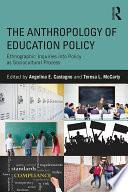
Education, Reform and the State
Twenty Five Years of Politics, Policy and Practice
The last quarter of the twentieth century was a very important period in history of education. Beginning with the so-called 'Great Debate', the period witnessed intense public and political interest in educational issues, culminating in an almost unprecedented amount of education-related legislation, the most symbolic of which was the Education Reform Act of 1988. Some scholars have rightly claimed that the education system was 'transformed' during this period, pointing to major changes in the ways in which schools, further education colleges and universities were organised, managed and controlled. Others have claimed that these changes altered the power relationships which had underpinned the education system since 1944. Given the sheer scale and pace of the education-policy related reforms of this period, this edited collection brings together some of the leading scholars in education to reflect on the major legislative and structural changes in education over the past few decades. Published in the year of the twenty-fifth anniversary of Callaghan's Ruskin College speech in 1976, it provides a definitive contemporary history of education policy in the late twentieth century. The editors bring together some of the leading educationalists to reflect on the major legislative and structural changes in the field over the last twenty five years. The book will be of use to education students on undergraduate and postgraduate courses, as well as students and academics working in social policy.
- ISBN 13 : 9781138166202
- ISBN 10 : 1138166200
- Judul : Education, Reform and the State
- Sub Judul : Twenty Five Years of Politics, Policy and Practice
- Pengarang : John Furlong, Robert Phillips, Robert Phillips, Robert Phillips,
- Penerbit : Routledge
- Bahasa : en
- Tahun : 2017
- Google Book : http://books.google.co.id/books?id=Rsn2nAAACAAJ&dq=intitle:Education+Policy&hl=&source=gbs_api
-
Ketersediaan :
This book supplies the definitive contemporary history of education policy in the late twentieth century. Some of the leading educationalists reflect on the major legislative and structural changes in the field over the last 25 years.









